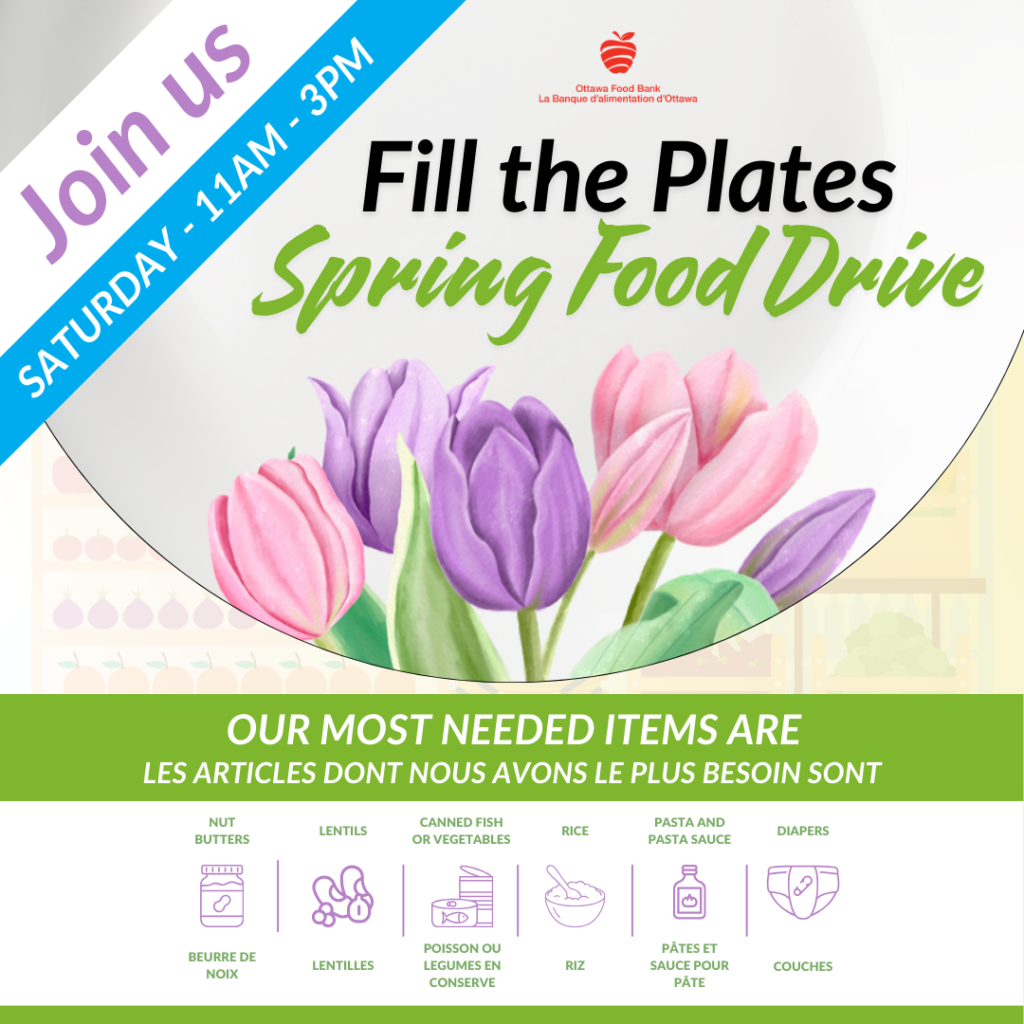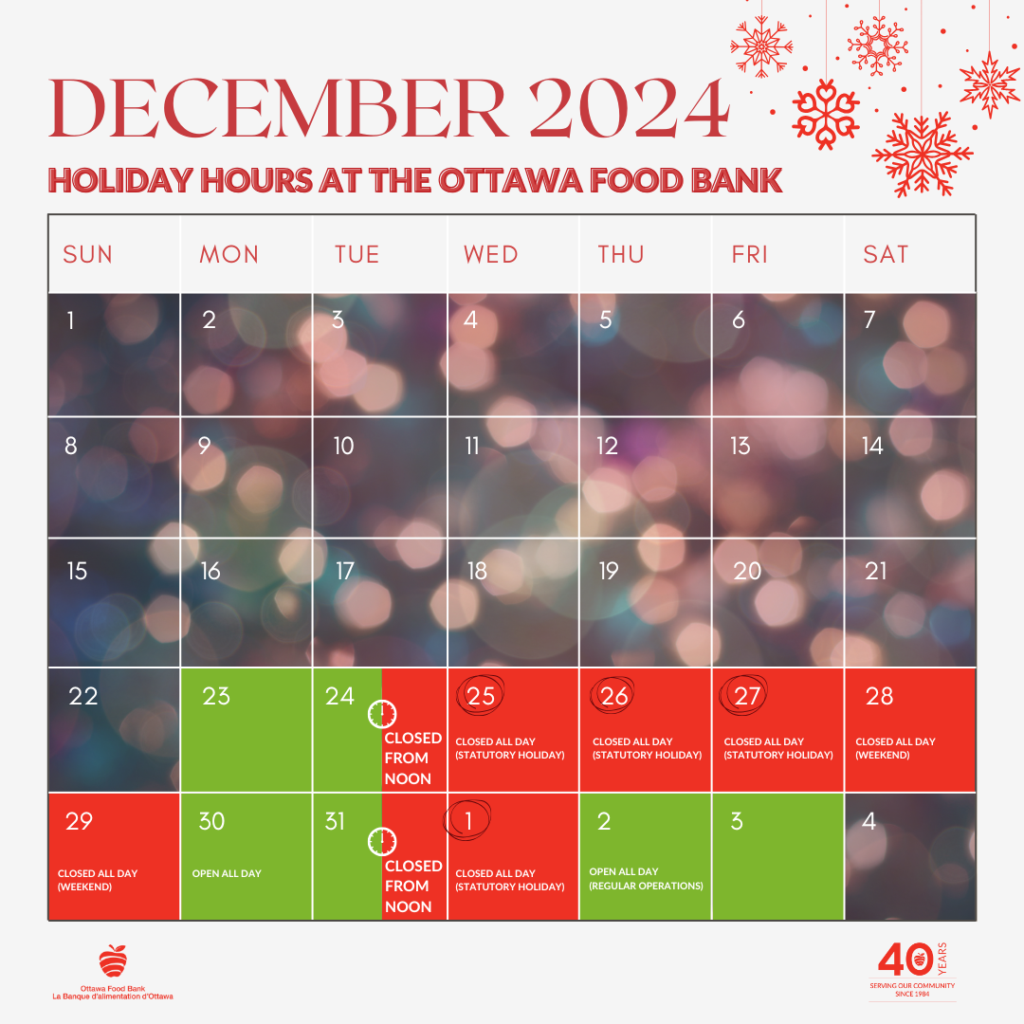1 in 4 Ottawa households faces food insecurity. This election, demand action.
Food insecurity is a non-partisan issue that requires commitment from all levels of government.
This isn’t about personal choices. It’s about federal policies that shape wages, housing, income supports, and the cost of living.
On April 28, 2025, Canadians won’t just elect a government. We’ll decide what kind of country we want to be. Whether you can vote or not, you have a role in this election. By asking questions, raising awareness, and demanding action, you can stand for a Canada committed to reducing food insecurity.
Hunger is at crisis levels in Ottawa. Food insecurity is no longer affecting just the most vulnerable—it’s reaching deeper into our communities, impacting families, workers, and newcomers alike.
Our 2024 Ottawa Hunger Report revealed the highest food bank usage in the Ottawa Food Bank’s 40-year history:
Over 556,232 visits were made to Ottawa Food Bank-supported programs in 2024.
1 in 4 households in the city is food insecure.
More newcomers, single-parent families, and even employed individuals are struggling to make ends meet.
37% of food bank visitors were children, underscoring the deep, generational impact of food insecurity.
This crisis isn’t just about food—it’s about affordability, wages, housing, and social policies that leave too many people behind.
This election, food insecurity must be on the agenda. We are calling on all candidates to prioritize policies that address not just hunger, but the root causes that drive it—because no one in Ottawa, or anywhere in Canada, should be forced to go hungry.
Food insecurity is at a breaking point across the country. 1 in 4 Canadians is affected by poverty, with food bank use soaring to record highs due to rising costs, inadequate wages, and a lack of affordable housing.
According to Food Banks Canada’s HungerCount 2024 report:
Over 2 million food bank visits were recorded in March 2024—the highest ever and a 90% increase since 2019.
1 in 3 food bank visitors was a child, highlighting the lasting, generational impact of food insecurity.
18% of food bank users are employed but still can’t make ends meet.
Nearly 70% of food bank clients live in market rent housing, where skyrocketing costs force impossible choices between food and shelter.
Food banks were never meant to be a permanent solution.
We stand with Food Banks Canada in calling for urgent action: leaders must commit to cutting food insecurity by 50% by 2030.
You can take action— No matter your voter status.
Get Ready to Vote
Voting is one of the most powerful ways to create change. Make sure you’re prepared for the 2025 Federal Election by checking your registration, eligibility, and ID requirements.
Learn how to vote in person, by mail, or in advance so your voice is heard.
Food Insecurity in Your Riding
Member agencies of the Ottawa Food Bank network operate food programs in federal ridings across the National Capital Region.
Learn more about the food programs in your area.
Understanding Party Stances on Poverty
Explore how federal parties plan to tackle poverty, food insecurity, and food bank use.
Visit Food Banks Canada’s Party Platform Monitor, tracking commitments to help you stay informed.
How Candidates Are Responding
We asked Ottawa’s federal candidates to take our Federal MP Questionnaire.
Visit our live response tracker to learn more about where candidates stand on poverty, food insecurity, and how they would support their communities if elected.
Connect with Your Federal Candidate
Engage with your local candidates on poverty-related issues—ask questions, share concerns, and advocate for stronger policies.
Find out who’s running in your riding and what to ask them.

